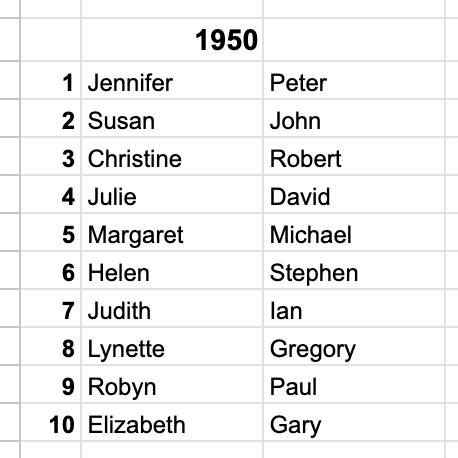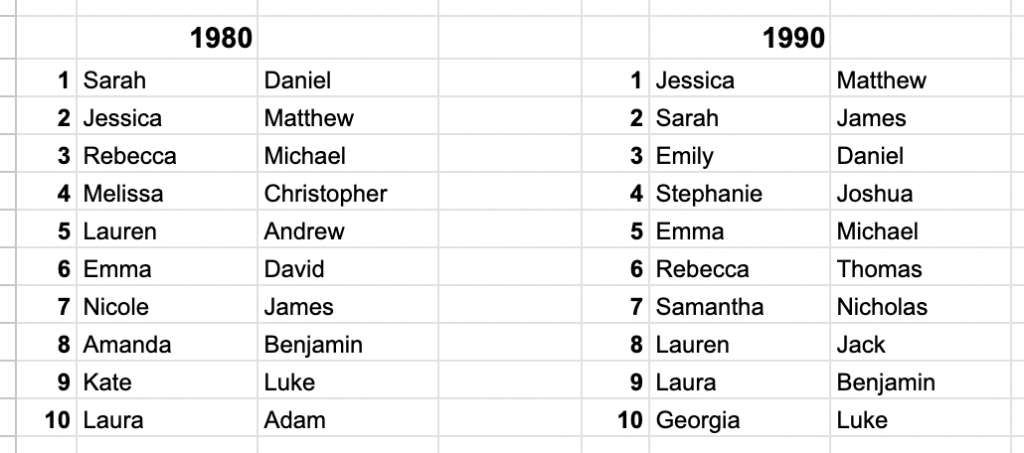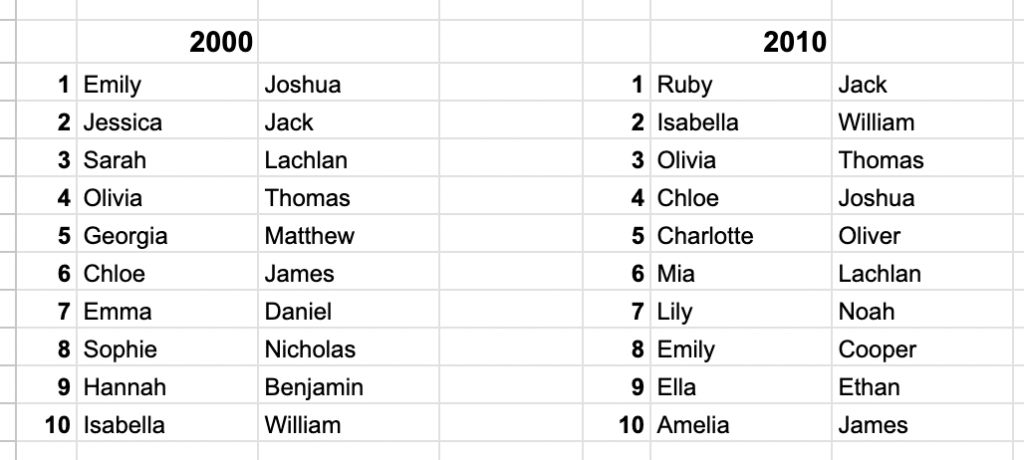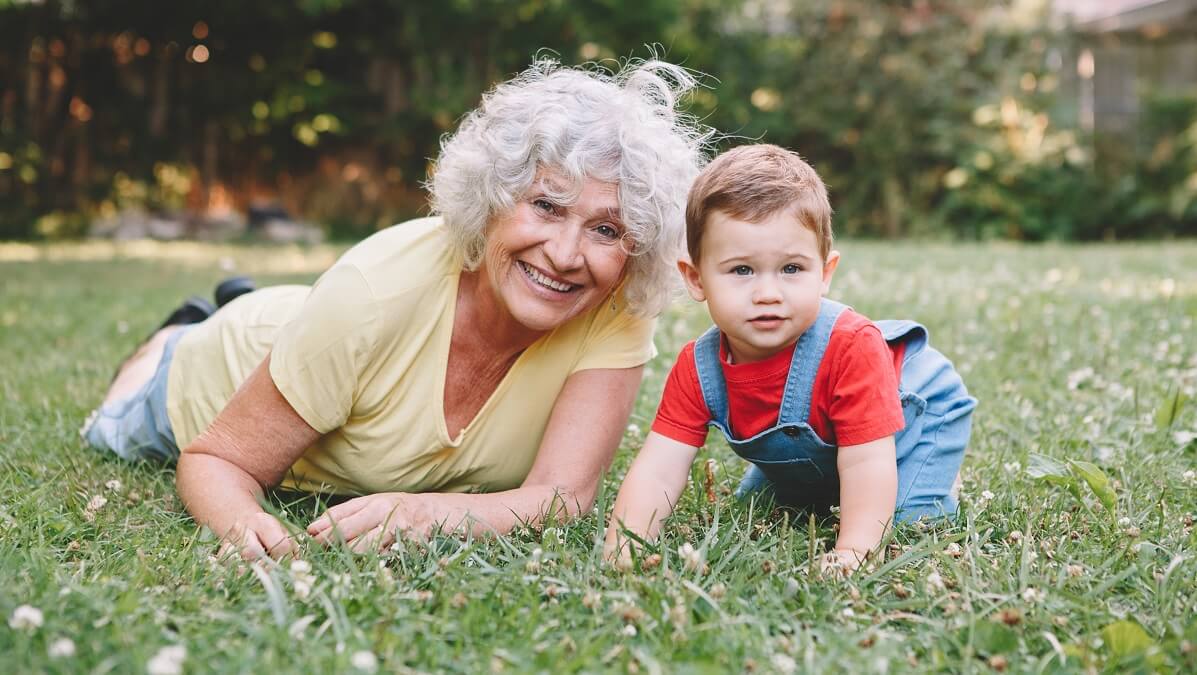The pressures of choosing a child’s name have changed a lot over the past 70 years, with parents now often reluctant to pick a name that’s too popular or too plain.
Each year, the states and territories around Australia reveal the top names given to babies in the previous year.
Analysing baby names at any point in history paints an interesting picture of that era. The builders generation (born before 1945) chose traditional names such as Peter, Paul, John, Karen, Jennifer or Sharon.
Jump to the 1980s and you’ll find that baby boomers began to show their creativity and choose more unusual names.
Baby name books only started to emerge in the 1980s, and they were the first-known baby name lists that were compiled. Prior to that, the only names people were given were names that people were already aware of.
Today, we have so much more access to names and see or hear new names to consider every week.
Here’s a look back over the decades to see what baby-naming trends took place in Australia over time.




Introducing generation alpha
Names mean something different now; it used to be that you were named after a grandparent or a religious figure. Now it’s about individual identity.
A name is now more than just what teachers will call you at school. It’s your digital real estate. It’s your email address, your social media handles, your website, the way people find and contact you in this world run by technology.
Most popular names for gen alpha
1. Charlotte / Oliver
2. Olivia / Noah
3. Amelia / Jack
4. Isla / William
5. Mia / Leo
6. Ava / Lucas
7. Grace / Thomas
8. Willow / Henry
9. Harper / Charlie
10. Chloe / James
How will popular names change in the future?
Unique baby names are no longer reserved for children of celebrities. Australian parents are now much more imaginative when it comes to picking names than previous generations.
One reason is an explosion in variety, multiculturalism and parents’ desire for individuality saw the pool of baby names grow from 4252 in 1957 to 16,676 today. That’s 300 per cent more names for only 30 per cent more babies being born.
Another trend is to put shortened names on the birth certificate.
A generation ago, if you met a baby called Max, you could safely assume his birth certificate said Maxwell or Maximillian.
But ‘nicknames’ on birth certificates are becoming more common, and it makes sense. If you have a daughter you know you will always call Tina, what’s the point in having Christina on the birth certificate?
In 2020, Evie (ranked 18 across Australia) is now more popular than Evelyn (ranked 19).
Ellie (37) similarly ranks higher than both Eleanor (47) and Elizabeth (55). Meanwhile, Frankie (36) is more popular than its formal counterparts Frances and Francesca, neither of which made the top 100.
Australians tend to lengthen or shorten names without rhyme or reason, though, so who knows what the baby will end up being called!
Banned baby names
You can name your child whatever first or middle name you want – within reason.
Under the Births, Deaths and Marriages Registration Act a registrar can refuse to register a name if:
- it’s obscene or offensive
- it cannot be established by repute or usage
- it’s too long
- it contains symbols without phonetic significance
- it is contrary to public interest
- it contains an official title or rank recognised in Australia such as King, Lady, Father, Sir or Admiral.
Do you have a popular name? Do you get called by a nickname that is different from the one on your birth certificate? Let us know in the comments section below.

